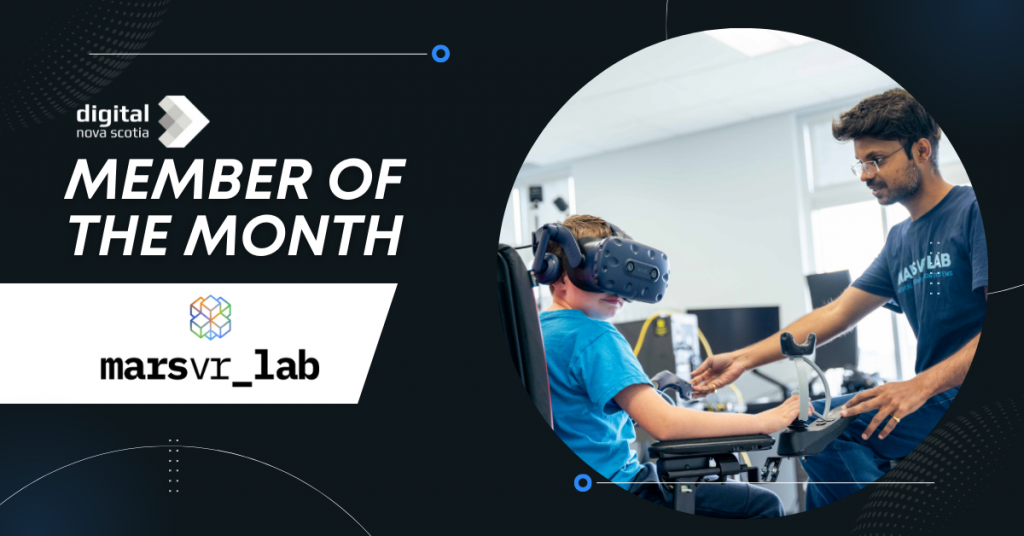
September 1, 2022
When one door closes, another opens – that’s the saying, right?
Once a side-venture, the global pandemic resulted in Danny Baldwin and Shawn Green to capitalize on their knowledge and turn MARS VR Lab into a full-time reality in 2020.
The possibilities of VR are endless. After meeting with occupational therapists Scott Thieu and Dr. Jordan Sheriko (a leading doctor in pediatric rehabilitation) at the IWK, Danny and Shawn knew where they needed to focus. Soon after, MARS VR Lab officially launched their partnership with the IWK, developing a VR game specifically designed to help children in need to learn how to drive a power wheelchair.
This venture brought light to the need for VR in pediatric rehabilitation and ultimately inspired the XPod and what MARS VR Lab is today. MARS VR Lab recognizes the impact virtual reality can have, and the potential it holds. The team at MARS VR Labs are strong advocates for placing patient care at the forefront of medicine by using VR to improve mobility and pediatric treatment through virtual therapy.
At MARS VR Lab, their goal is to support children with disabilities by creating gamified VR experiences that enable skill building to help reach their full potential, while infusing creativity and fun. Danny and Shawn recognized a barrier that hospitals have in adopting new technologies and saw a way to help!
This has only become possible thanks to the diverse skill set of MARS VR Lab’s fast-growing team. What’s exciting about the development team is that they come from different backgrounds ranging from software engineers to co-op students to animators, all working towards a shared goal. MARS VR Lab’s leadership team is passionate about personal growth and helps ensure all employees reach their full potential.
Right now, the team just finished phase two of three of their clinical research trials with the IWK. They are hopeful to have their products accessible to the Canadian healthcare industry and reduce barriers surrounding mobility training. VR can decrease the intimidation a young child might face learning to drive a wheelchair in small spaces and prepare them for facing environmental obstacles in real life.
“Our mission is to make sure children needing rehabilitation have access to our products and that clinicians have the tools needed to help patients.” – Daniel Baldwin, CEO and Co-founder of MARS VR Lab
What makes this technology unique is the versatility in use amongst healthcare workers to their patients. Not only can VR simulations train doctors to allow for less error in the operating room, but can improve end of life care, specifically patients confined to a hospital bed. To learn how VR can help terminally ill people live out their dreams until the end of life, we highly recommend reading CEO Danny Baldwin’s recent blog post.
From using a Snapchat filter or using an app to picture how a sofa will look in our living room, we are already using VR technologies in our everyday lives. MARS VR Lab is dedicated to unlocking the potential of play through gamified VR experiences.
To learn more about their role in implementing VR in Canada’s healthcare system, check out their website or reach out by email!
